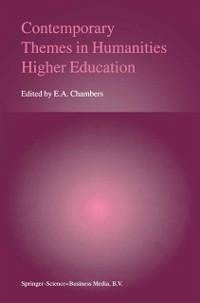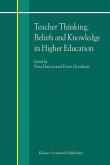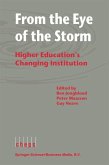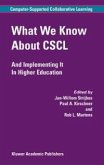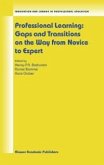This book is about the teaching and study of the humanities in our universities. It addresses humanities educators, whose job it is to teach undergraduate students, researchers into the processes of teaching and learning involved, and higher education policy-makers. The book aims to stimulate discussion among them of the proper purposes, processes and outcomes of this form of education. And, in the process, it aims to help define and develop the new field of Arts and Humanities Higher Education (AHHE) . In the humanities, as in other academic domains of higher education, a public discourse of teaching and of students' learning is presently underdeveloped. This may seem surprising given the long history of the university as an institution, and the huge resources devoted to higher education in many countries, but there are of course reasons for it. First, until very recently there has been no profession of teacher education focused on the academy. Simply, academics have needed neither training nor qualification as teachers of their subject, so that no-one has been required to make teacher education their business or teaching-learning in 2 higher education their special field of interest . As regards schooling, the The label 'Arts and Humanities Higher Education' reflects the fact that the humanities subjects (Classics, Cultural Studies, History, Art History, European Studies, Languages, Literature, Philosophy, Religious Studies, etc. ) are usually taught in the Faculty of Arts in UK universities. The book does not include discussion of the fine or performing arts except incidentally.
Dieser Download kann aus rechtlichen Gründen nur mit Rechnungsadresse in A, B, BG, CY, CZ, D, DK, EW, E, FIN, F, GR, HR, H, IRL, I, LT, L, LR, M, NL, PL, P, R, S, SLO, SK ausgeliefert werden.
'Contemporary Themes in Humanities Higher Education is a valuable collection which articulates questions and potential solutions about the future of the field, its teaching and its research. It is a particularly welcome contribution in the current climate when discussions surrounding education tend to be about cutbacks, efficiencies and performativity.' -- Colleen Mckenna in Teaching Higher Education, 8:1 (2003)
`Contemporary Themes in Humanities Higher Education is a valuable collection which articulates questions and potential solutions about the future of the field, its teaching and its research. It is a particularly welcome contribution in the current climate when discussions surrounding education tend to be about cutbacks, efficiencies and performativity.'
Colleen Mckenna in Teaching Higher Education, 8:1 (2003)
Colleen Mckenna in Teaching Higher Education, 8:1 (2003)
`Contemporary Themes in Humanities Higher Education is a valuable collection which articulates questions and potential solutions about the future of the field, its teaching and its research. It is a particularly welcome contribution in the current climate when discussions surrounding education tend to be about cutbacks, efficiencies and performativity.'
Colleen Mckenna in Teaching Higher Education, 8:1 (2003)
Colleen Mckenna in Teaching Higher Education, 8:1 (2003)

